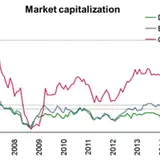What’s “Wabi Sabi” and why it can be your next life philosophy. A talk with Peter Kasahara.
Peter Kasahara is a Partner and works 100% as Digital Intelligence Leader with a Global Consulting firm in Zurich. Learn more about the importance of coaching for him and his life philosophy.
Why is coaching important for you?
I think coaching is at the core of my role as a leader, as a Partner at a Global Consulting firm based out of Switzerland, but also as a human being. Coaching gives permission and is the key to unlocking the full potential of a person. Every person deserves to make progress, to evolve and to find the beauty in her- or himself. Being the external influencing factor which makes a difference is in the DNA of coaching.
How do you make time for coaching in your daily work-life?
This is an art and science question as well as an obligation as a leader: human-centric leadership is not just addressing the subject matter expert; it is taking care of the entire person and this can differentiate us from competitors. Neither art nor science can happen without preparation and dedication: in my weekly schedule, I dedicate time for one-to-one interactions or small group sessions where we are not talking pure business but people aspects too. During these conversations, you need to be present, you need to listen and pay attention and sometimes prepare content to support or trigger the dialogue. The biggest gift that we have as humans is time. Our people are the most important success factor and they deserve time.
What is your ‘coaching hack’ for new/other career coaches and team leaders?
Let me rephrase it into ‘Don't be a couch potato, be a coach tomato’, and as no tomato is ever exactly the same, tomato stands for really having a very different perspective, not just in client-oriented BXT (Business Experience Technology) interactions but also in transforming as a person. If you can help your coachee to know what their strengths are, what their passion is and what their growth opportunity is, then you will see their sweet spot where all those three dimensions or circles overlap. Find that sweet spot as a coach. The other thing is not only to focus on how to address the content, but also on how to access the person. It’s about how you can ‘kiss their brain and touch their heart’ or ‘touch their brain and kiss their heart’ in an interaction so that people feel free to open up. For me, this means connecting with the person’s thoughts, as well as their feelings and emotions and evoking wholesome personal development through this. Of course, everyone has a personal privacy sphere and decides by themselves how much they want to open up and share. But that also links into the classic dimension of trust, which is built on reliability, credibility, intimacy, and self-orientation. Therefore, a coach needs to create trust, which is of course key for us, as trust is one of the big defining foundations of the work place.
What empowers you?
I am half Japanese and half Swiss and Wabi Sabi is the Japanese philosophy I was raised with. Wabi Sabi means: “You strive for excellence. You strive for perfection, but in order to do so, you always remain yourself. Only then does your imperfection come out naturally and only that will make you beautiful.” So, I think that is the point. See yourself with all of your imperfections while striving for excellence. I wish everyone more Wabi Sabi as a powerful engine for your progress.



